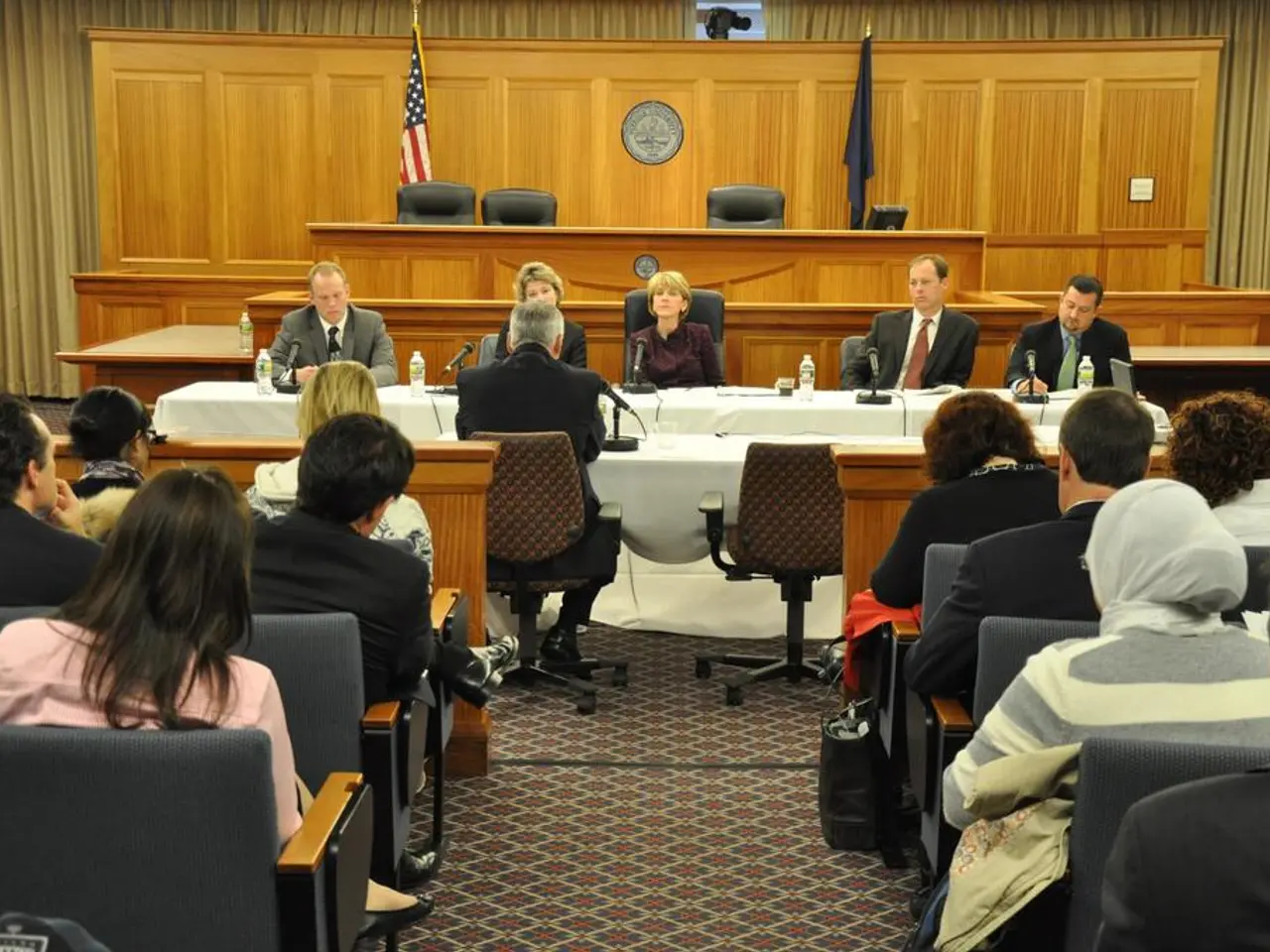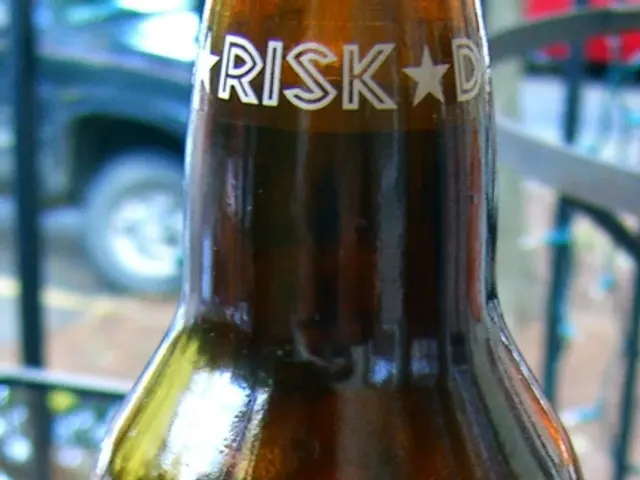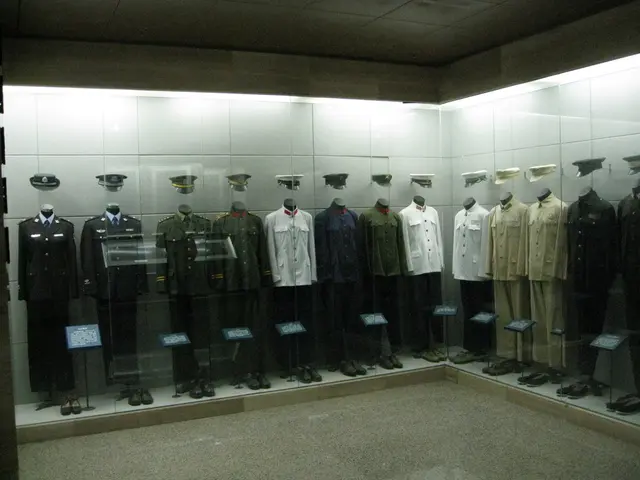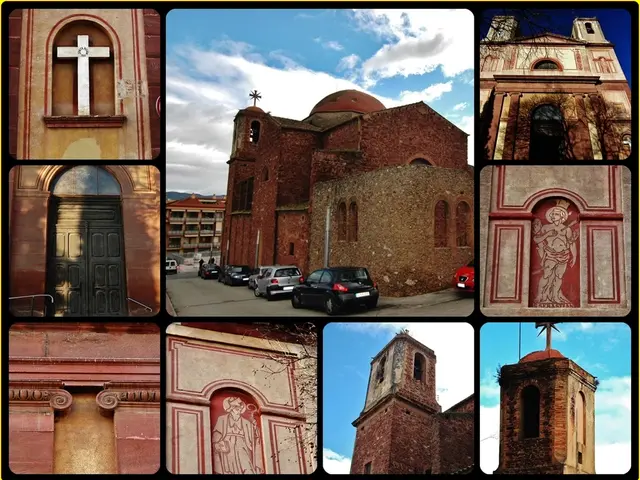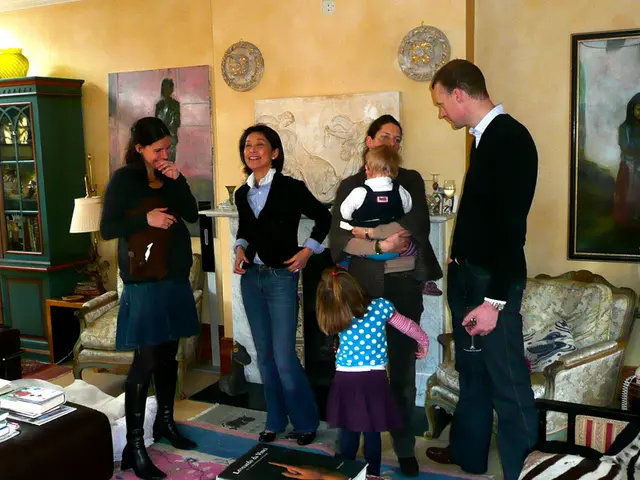Meerbusch's integration program unveiled for new immigrants
In North Rhine-Westphalia (NRW), a group of approximately 100 immigrants recently embarked on a unique journey - a visit to a political center in the heart of the country. This event, organised by VHS Meerbusch, was more than just a political education day; it was an emotional experience that left a lasting impression on the participants.
The visit, part of the broader framework of Germany's immigration and asylum procedures, aimed to facilitate the registration and orientation of newcomers, providing them with essential information about the legal framework, rights, and responsibilities in NRW. The event served to promote integration policies that include political and social orientation, aligning with Germany’s efforts to enhance inclusion and respect pluralism.
The excursion included visits to places of democratic participation, offering insights into the history and political structures of the country. Highlights of the visit included the parliamentary building, where the participants were given a tour, and the round plenary hall, a symbol of democratic dialogue and decision-making.
During the program, the participants' voices were heard as they directed questions to Kuper, the President of the Parliament, about topics such as voting rights, driving tests in different languages, climate and energy policy, and education and housing. The personal exchange with Kuper was a significant part of the experience, fostering dialogue between immigrants and state authorities to promote mutual understanding and address challenges related to migration.
The three-hour program was a success, as indicated by the participants' reactions. Béatrice Delassalle-Wischert, who summarised the event, stated that the participants were satisfied with the program and the serious consideration of their questions. The gratitude of the participants for the opportunity was evident, and the visit will be remembered for a long time by those who attended.
The political center visit for immigrants in NRW exists within the state's commitment to structured reception and integration, focusing on registering immigrants, informing them about their rights and duties, and supporting their integration into society. This visit is a testament to the efforts being made to ensure that newcomers are well-informed and integrated, fostering a more inclusive and respectful society.
The immigrants who participated in the visit were guests from all over NRW, reflecting the diverse cultural landscape of the region. For many, this visit was a significant part of their learning experience, as they have been learning German daily for five hours since November 2024. The political center visit offered a practical and engaging way to learn about the country's political system, making the learning experience more meaningful and memorable.
In conclusion, the political center visit in Meerbusch was a successful event that provided immigrants with a valuable opportunity to learn about the political system of NRW and Germany. The visit served as an essential part of a successful integration process, fostering dialogue and promoting mutual understanding between immigrants and state authorities. This event is a shining example of the commitment to integration and the efforts being made to create a more inclusive and respectful society in NRW.
[1] North Rhine-Westphalia: https://en.wikipedia.org/wiki/North_Rhine-Westphalia [2] Federal Office for Migration and Refugees (BAMF): https://en.wikipedia.org/wiki/Federal_Office_for_Migration_and_Refugees [3] Integration policies in Germany: https://en.wikipedia.org/wiki/Integration_policy_in_Germany [4] Arrival centres in Germany: https://en.wikipedia.org/wiki/Arrival_centres_in_Germany
- The political center visit, being a part of broader Germany's immigration and asylum procedures, not only offered a platform for registration and orientation but also served as a valuable education-and-self-development opportunity for immigrants, particularly in understanding the political structures and democratic participation in North Rhine-Westphalia.
- The event, aligning with Germany’s efforts to enhance inclusion and respect pluralism, extended beyond politics; it also provided general-news updates and discussions, fostering open dialogue between immigrants and state authorities, essential for addressing challenges related to migration.
